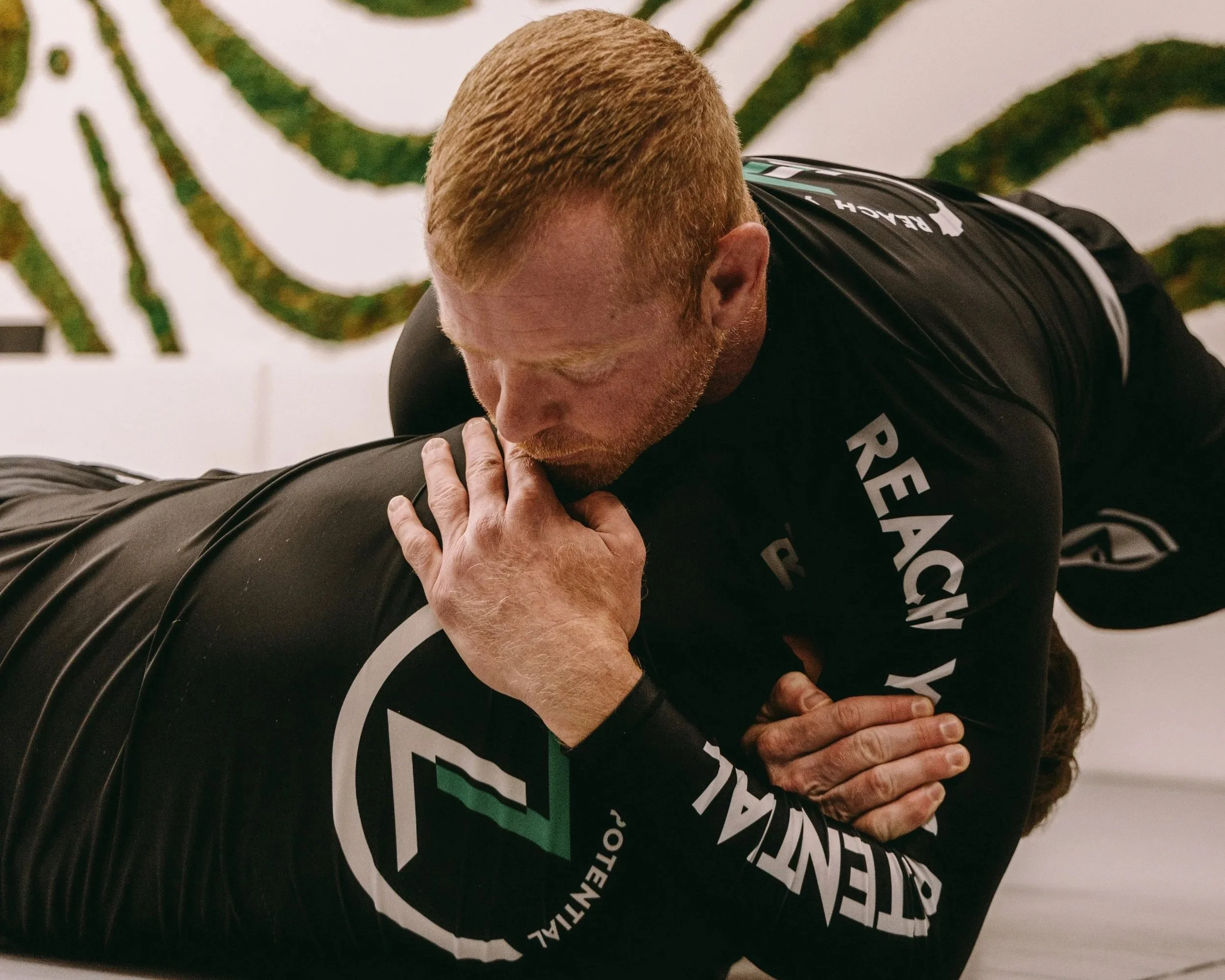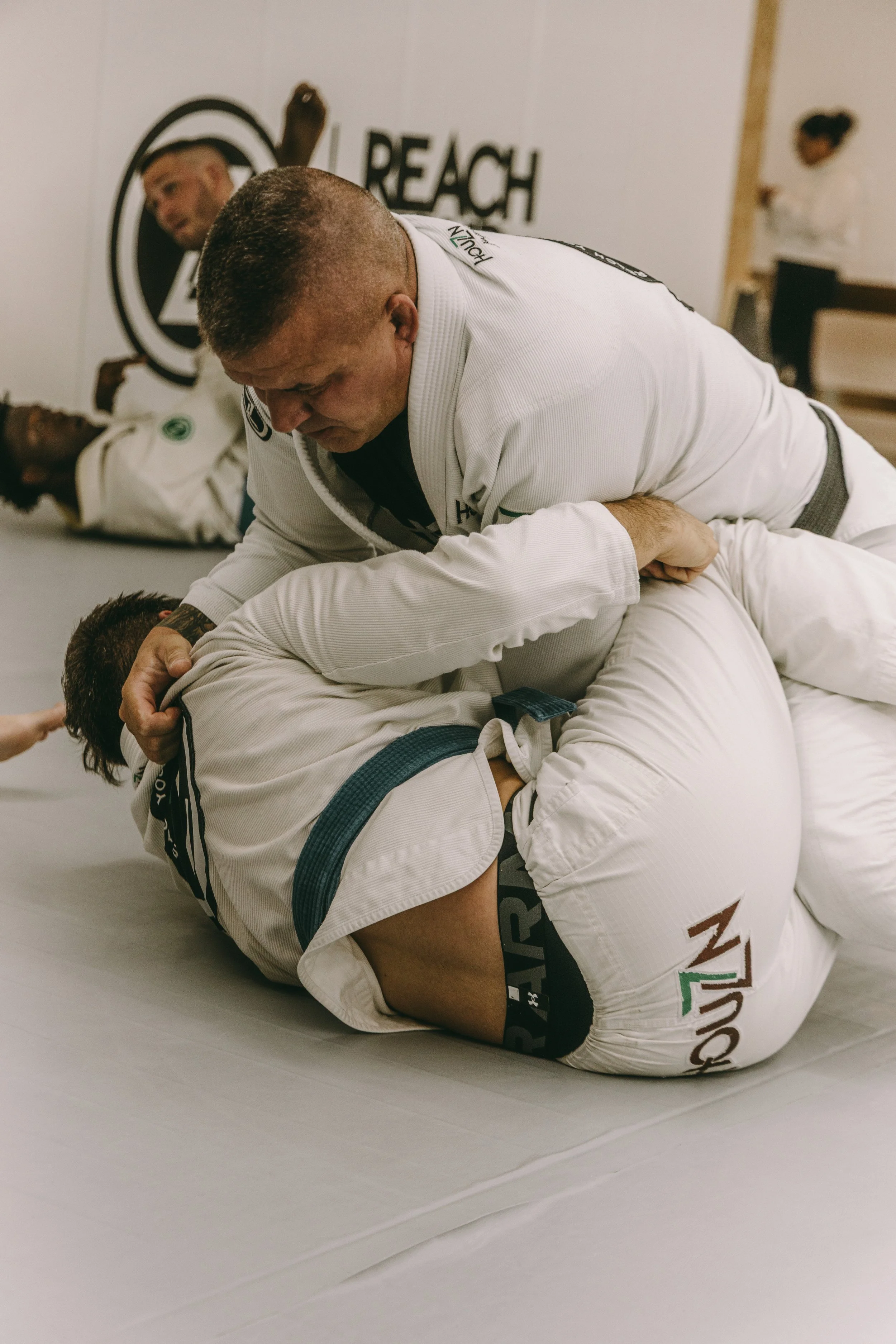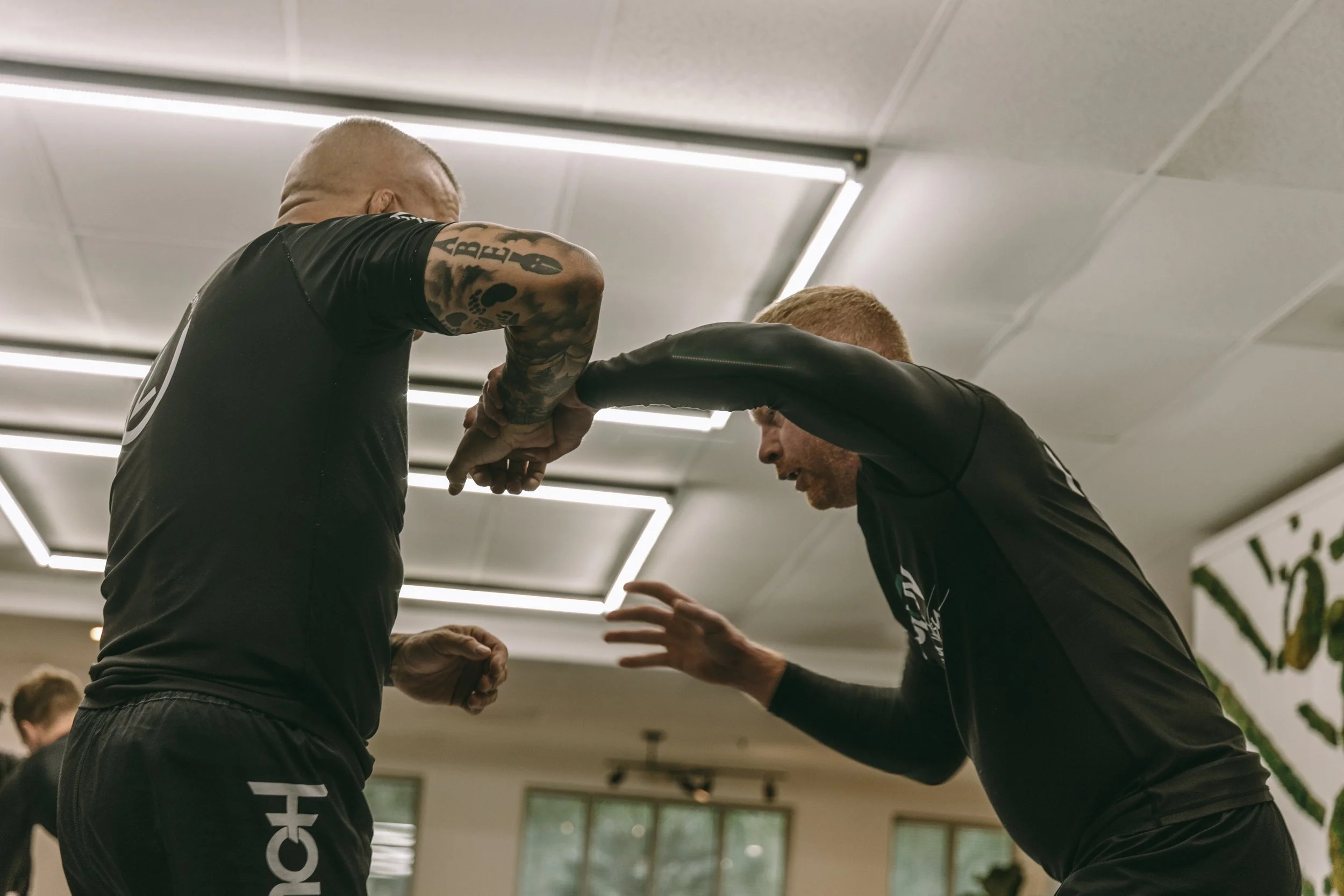The Grappling Edge: BJJ vs. Traditional Tactics in Law Enforcement
As the landscape of law enforcement evolves, the debate intensifies: Brazilian Jiu-Jitsu vs. traditional tactics. BJJ offers officers superior control and reduced force, aligning with modern demands for de-escalation and accountability. This martial art emphasizes technique over aggression, promising fewer injuries and enhanced public trust. However, the transition requires time and commitment. With increasing evidence of BJJ’s effectiveness, it's time for departments to reconsider their training paradigms. Discover how BJJ can redefine policing, ensuring safer outcomes for officers and communities.
In the grand narrative of law enforcement, the story of how officers are trained to handle physical altercations is as old as policing itself. For years, traditional methods have dominated this domain. However, Brazilian Jiu Jitsu has emerged as a compelling alternative, forcing us to question what’s most effective for the paradigm of modern law enforcement.
Let's consider the typical scenario: a suspect resists arrest. Historically, simple control-and-conquer techniques were the go-to. Officers relied on strength and stature, employing tactics like baton strikes or grappling holds developed decades ago. These methods are direct but often seen as aggressive, sometimes escalating rather than de-escalating a situation.
Enter Brazilian Jiu Jitsu, a martial art hinging on leverage, technique, and control rather than sheer force. BJJ encourages officers to subdue individuals with minimal harm. Its approach centers on non-violent submission, emphasizing control without the need for excessive force. The techniques focus on balance and leverage, allowing a smaller officer to effectively and safely control a larger suspect.
Law enforcement agencies adopting BJJ training report notable improvements. Officers feel more confident and less reliant on potentially harmful methods, leading to fewer injuries for both parties involved. This approach aligns with the modern push for police reforms demanding accountability and reduced use of force.
Critics, however, argue that the transition to BJJ can be daunting. Skeptics point out the time and dedication required to master BJJ techniques, suggesting that not all officers have the time or resources for such extensive training. Yet, as data accumulates, showcasing reduced injuries and lawsuits from departments that implement BJJ training, it becomes hard to ignore its positive impact.
It’s imperative, therefore, for decision-makers in law enforcement to weigh the merits of jiu-jitsu against traditional methods. Embracing BJJ could redefine public perception of policing and elevate the standards of accountability and efficiency.
As we explore these unfolding narratives, the crucial step forward is education and implementation. Let's urge law enforcement leaders to rigorously evaluate these training methodologies. By doing so, we not only enhance officer capability but also pave the way for safer community interactions. So ask yourself, what kind of future do we want for policing? And what steps will you advocate for in your community today?
Training for Trust: How BJJ Can Influence Police-Community Engagement
Brazilian Jiu Jitsu is becoming a pivotal tool in enhancing police-community relations. Focusing on discipline, empathy, and de-escalation, BJJ training reshapes how officers engage with the public. Through understanding and mutual respect, officers trained in BJJ can foster safer, more trusting communities. The art of BJJ emphasizes non-violent resolution and communication, crucial for modern policing. As police departments adopt BJJ, the ripple effect of increased trust can lead to community healing and cooperation. Dive into this transformative approach and explore how your community can benefit from BJJ training for a safer tomorrow.
Imagine a world where police officers and community members share not just spaces but mutual goals. Brazilian Jiu Jitsu provides such a platform, a collaborative arena fostering trust, reducing crime, and enhancing public safety. The potency of BJJ lies not in its complexity but in its basic human principles: cooperation, respect, and understanding.
First, let us recognize the power of shared experiences. Think of trust as a bridge, essential for any truly functional interaction, especially between law enforcement and communities. When officers and community members engage in BJJ training, they break down barriers. They evolve from strangers to allies in a shared struggle, mirroring real-life conflicts in a controlled environment.
In grappling sessions, rank and status dissolve. Everyone is simply a participant, subject to the same rules and challenges. This democratization breeds respect and empathy. Police officers gain insight into the community's perspectives, and citizens see law enforcement in a new, humanized light.
Research across various domains reflects a direct connection between mutual respect and crime reduction. Understanding breeds respect. Respect, in turn, reduces fear, misunderstandings, and hostility. This mutual recognition aligns interests towards a collective goal: safer neighborhoods.
Consider how BJJ uniquely emphasizes calm under pressure. This vital skill translates to better decision-making in the field, enabling officers to engage communities with empathy and efficiency. Lower stress levels and improved conflict management mean fewer undesirable outcomes in tense situations, fostering a safer atmosphere for all.
Incremental, consistent training alters mindsets, encouraging continuous growth and durable alliances. Community members develop confidence not merely in self-defense but in the notion that collaboration overcomes confrontation. Meanwhile, officers refine crucial skills, not only physical but interpersonal, nurturing more intelligent engagement strategies.
The result? Increased cooperation, lower crime rates, and a strengthened social fabric. Enhanced police-community interactions based on trust and respect elevate not only individual experiences but community well-being. Trust breeds safety, which promotes trust, a virtuous cycle brought to life on the mats.
In conclusion, BJJ offers more than mere self-defense. It shapes communities, enhancing synergy and reducing crime. It represents a disciplined yet dynamic approach to solving distrust and disengagement, wrestling society’s deeper issues into submission.
Now, consider the possibilities if your community embraced this transformative practice. Encourage your local police department to join hands—literally and figuratively—with the community in a BJJ program, forging trust through training. The path to safety and solidarity starts with a single step onto the mat. Are you ready to begin this journey together?
BJJ Beyond the Badge: The Mental and Physical Wellness Benefits for Law Enforcement Officers
Brazilian Jiu Jitsu offers law enforcement officers significant mental and physical wellness benefits, enhancing their ability to stay calm and resilient under pressure. With a focus on strategic thinking and physical agility, BJJ helps officers effectively handle high-stress situations while promoting overall health. Its principles of control and empathy aid in de-escalating conflicts, ensuring safer interactions with the community. Discover how BJJ empowers those who serve and protect, fostering well-being and professional excellence.
In a world where the line between order and chaos hangs by a thread, law enforcement officers shoulder the profound responsibility of maintaining societal balance. These men and women face pressure, stress, and often physical confrontations that test their limits. Brazilian Jiu Jitsu emerges as a particularly transformative practice for supporting the mental and physical wellness of those in these roles.
At its core, BJJ offers a profound discipline that enhances mental health and resilience. Practicing BJJ demands presence of mind, strategic thinking, and the ability to stay calm under pressure. For officers who often encounter high-stress situations, this mental training is invaluable. It imbues practitioners with a deeply rooted sense of composure, enabling them to think swiftly and act judiciously even when confronted with adversity.
Physical fitness is not merely a component of personal health but a vital aspect of an officer's readiness and safety on duty. BJJ provides a comprehensive fitness regime, encouraging flexibility, strength, and cardiovascular health. Unlike more rigid forms of exercise, BJJ nurtures a holistic physical development that fosters both agility and strength. Officers engaging in regular practice develop not only the ability to handle physical encounters but also the stamina to pursue their duties effectively.
Additionally, BJJ cultivates resilience. A core trait for those tasked with confronting society's darker elements. It teaches practitioners to view obstacles not as insurmountable threats but as puzzles to solve. This mindset encourages adaptability and tenacity, vital attributes for enduring the unpredictable demands of law enforcement.
Significantly, BJJ nurtures an understanding of human nature through controlled combat, fostering empathy and patience, qualities essential for de-escalating potentially violent situations. An officer skilled in BJJ can diffuse tension with a balanced approach, thus promoting safer community interactions.
BJJ is more than a martial art, it's a transformative journey that prepares law enforcement officers for their complex roles. It empowers them to safeguard their health, hone resilience, and serve the community with integrity and strength.
If you’re an officer, embrace the path of BJJ. Achieve mental clarity, physical prowess, and a robust sense of resilience, elevating both personal well-being and professional capability. Consider reaching out to a local academy and take the first step towards integrating this profound art into your life and work.
Rolling in the Right Direction: BJJ's Role in Building Community Trust
Brazilian Jiu Jitsu is vital in fostering community trust and unity, especially in law enforcement. Through Law Enforcement Jiu Jitsu Training, officers learn essential self-defense techniques that enhance their skills and build public confidence. BJJ schools serve as safe spaces where diverse individuals, including police, gather to forge strong bonds through shared challenges and growth experiences. The emphasis on takedown techniques for police promotes effectiveness and safety, helping officers maintain control in tense situations. With BJJ's impact on personal and collective development, it's a movement for positive change. Discover the role of BJJ in strengthening your community today! Engage, grow, and unite.
In the heart of every thriving society is trust, an essential component that allows communities to flourish. Among the many pathways to nurturing this trust, Brazilian Jiu Jitsu stands out not only for its philosophical depth but also for its pragmatic benefits, particularly within law enforcement.
Brazilian Jiu Jitsu in Law Enforcement training programs play a crucial role in building community trust. These programs offer officers practical skills that go beyond physical conditioning. By engaging in BJJ training programs for police, officers enhance their self-defense techniques, building confidence and competence in handling volatile situations.
For police officers, trust-building is about demonstrating control and restraint without excessive force. This is where Jiu Jitsu for Control and Restraint becomes vital. Through law enforcement grappling skills, officers can de-escalate situations effectively, protecting themselves and civilians. BJJ for Use of Force Situations provides crucial strategies, reducing the need for more aggressive interventions.
One key aspect of Law Enforcement Jiu Jitsu Training is the cultivation of discipline and resilience. These qualities foster a sense of responsibility, critical in policing. Police Defensive Tactics BJJ focuses on achieving safety and control, helping officers navigate high-stress environments with a calm and measured approach.
Consider the impact of Jiu Jitsu Benefits for Law Enforcement: officers trained in BJJ can engage in de-escalation training, crucial for maintaining peace and order. When officers practice self-defense techniques, like those in BJJ for Cops, they not only secure their own safety but also uphold community trust.
Police Officer BJJ Techniques and effective BJJ moves for law enforcement are tailored to ensure officers can manage confrontations efficiently and safely. This practical application of BJJ is critical, especially in situations requiring safety and control BJJ for police. Through combatives training with Jiu Jitsu, officers learn takedown techniques for police that minimizes harm while maximizing effectiveness.
Moreover, instituting Police Jiu Jitsu Certification can standardize these practices across departments, ensuring a consistent approach to law enforcement challenges. Such certifications reinforce the credibility of officers, fostering deeper community trust in their capacity for control and restraint.
Empowered with Jiu Jitsu for Officer Safety, officers can approach their roles with enhanced capability and confidence. They embody a model of respect and resilience, reinforcing public perception of law enforcement as a force for communal safety.
Invest in this transformative approach, explore BJJ within law enforcement. Witness the cultivation of a community where trust is abundant and shared strength and safety are the norm. Let BJJ be a pivotal step in rolling our society in the right direction toward enhanced trust and security.
Defensive Skills for Duty: The Rise of BJJ in Law Enforcement
Law enforcement serves as the delicate line between chaos and order. Traditionally reliant on sheer force, policing must evolve towards precision and control, emblematic of Brazilian Jiu-Jitsu. BJJ trains officers to de-escalate volatile situations with minimal harm, leveraging an opponent's energy to maintain peace. The result? Heightened officer confidence and increased public trust as incidents of excessive force dwindle. Empirical evidence supports this strategic shift.
Take action today! Discuss the benefits of BJJ training with local officials. Your voice can push for meaningful change in policing for a safer community.
In recent years, Brazilian Jiu-Jitsu BJJ has surged in popularity among police officers, and for good reason. Understanding why this discipline is becoming indispensable requires unraveling the dynamics of attraction to truth and competence, two virtuous motivators at the heart of any effective policing strategy.
A police officer's primary mission is to serve and protect. In executing this duty, officers often encounter high-tension scenarios where de-escalation is paramount. BJJ, a martial art focused not on delivering blows but on leveraging an opponent’s energy through holds and submissions, equips officers with the necessary skills to subdue without harm. This is not just theoretically compelling, it is rooted in observable and repeatable practice, a testament to its efficacy.
Consider the evidence: BJJ’s controlled grappling techniques drastically reduce the likelihood of excessive force, thereby increasing public trust in police. Officers who train in BJJ become adept at employing restraint without resorting to violence. The implications of this shift are substantial. We see reduction in incidences of injury, both for officers and civilians, and an enhancement of morale within police forces. What we know, as articulated in social psychological literature, is that people trust authority figures who exhibit competence and care. BJJ meets both criteria, offering a compelling case for its integration into law enforcement training programs.
A principle that is often emphasized is the Pareto distribution, also known as the 80/20 rule. Training law enforcement officers in BJJ might follow a similar pattern. A relatively small investment in comprehensive training yields considerable benefits across many scenarios officers will encounter. By focusing on mastering BJJ’s fundamental principles and techniques, officers could cultivate an effective, consistent method of interaction and conflict resolution.
Now, as members of a civic society, we bear a shared responsibility. If you are an officer or someone who can influence training policies, embrace this call to action: advocate for comprehensive BJJ training within your department. Petition for programs that enhance officer and public safety alike. Encourage local law enforcement to adopt BJJ as a pillar of their training regimen.
Our goal must be the creation of a society where authority is respected not because it insists on power, but because it consistently demonstrates wisdom and prudence. Support the rise of Brazilian Jiu-Jitsu in law enforcement, and in doing so, help form a safer, more harmonious society.















